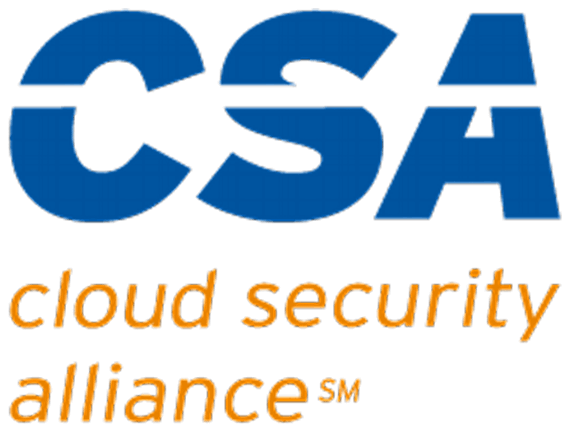Introduction
IT consulting is when a business seeks advice and assistance from IT professionals to improve their technology systems. IT consultants help companies with things like network security, data management, software implementation, and compliance with regulations. They analyze, recommend, and implement solutions to help businesses run more efficiently and securely.

Importance of HIPAA compliance
HIPAA compliance is a requirement for businesses that provide healthcare and related services and can also be a requirement for vendors supporting those businesses if those vendors potentially come into contact with patient medical information. Failing to comply with HIPAA regulations can result in hefty fines and damage to your business’s reputation. By ensuring HIPAA compliance, you are not only safeguarding sensitive patient information but also demonstrating your commitment to ethical practices and data security. Protecting patient privacy and maintaining trust within the healthcare industry are key reasons why HIPAA compliance should be a top priority for your business.
Understanding HIPAA regulations
HIPAA regulations are designed to protect sensitive patient information. Healthcare providers must adhere to these rules to safeguard patient privacy. Under HIPAA, businesses must implement security measures, such as encryption and secure communication channels, to ensure the protection of patient data. Regular training for employees is essential to maintain compliance with HIPAA regulations. Audits may also be conducted to verify compliance.
Risks of non-compliance
HIPAA non-compliance can lead to hefty fines for your business. The Office for Civil Rights can penalize up to $1.5 million per violation category. This could severely impact your finances. Furthermore, failing to follow HIPAA regulations might damage your reputation and cause a loss of trust from clients. It’s crucial to prioritize compliance to avoid these risks.
Role of IT consulting in ensuring HIPAA compliance
IT consulting plays a crucial role in ensuring that your business meets the requirements of HIPAA compliance. Here’s how it helps:
- Assessment and Gap Analysis: Consultants can assess your current IT systems and practices to identify any gaps in compliance with HIPAA regulations.
- Implementation of Security Measures: They can assist in implementing necessary security measures such as encryption, access controls, and regular security audits to safeguard patient data.
- Training and Education: Consultants can train your staff on HIPAA regulations and best practices to ensure continued compliance.
- Risk Management: IT consultants help mitigate potential security threats and vulnerabilities by conducting risk assessments and developing risk management strategies.
- Audit Support: Consultants can help prepare your business for compliance audits and assist in addressing any findings to maintain HIPAA compliance.
HIPAA compliance assessments
HIPAA compliance assessments are crucial for ensuring that your business meets the necessary standards to protect sensitive patient information. Here are a few key points to consider:
- Regular assessments are necessary to identify any gaps in compliance and address them promptly.
- HIPAA compliance assessments include evaluating security measures, policies, employee training, and risk management practices.
- Conducting these assessments helps to prevent data breaches and avoid costly fines for non-compliance.
- Compliance assessments should be conducted by experienced professionals to ensure accuracy and thoroughness.
Implementing security measures
When implementing security measures for HIPAA compliance, your IT consulting team will focus on safeguarding sensitive patient information. They will set up firewalls, encryption, and access controls to protect data from unauthorized access. Regular security audits and employee training will also be part of the process to ensure ongoing compliance with HIPAA regulations. Remember, maintaining a secure IT environment is crucial to protect your business and the privacy of your clients’ health information.
Staff training and awareness
Ensure all staff members are trained on HIPAA regulations to protect patient information. Schedule regular training sessions to keep everyone up to date. Create protocols for handling sensitive data and ensure all staff are aware of them. Accidental breaches can be costly, so ensure everyone understands the importance of compliance.
Handling data breaches
Data breaches can be detrimental to your business, so it’s crucial to take quick action if one occurs. Here are some steps to follow:
- Assess the situation: Determine the extent of the breach and identify the compromised data.
- Contain the breach: Take immediate steps to stop the breach from continuing and prevent further data exposure.
- Notify the necessary parties: Inform your IT team, management, and relevant authorities about the breach.
- Investigate the cause: Conduct a thorough investigation to understand how the breach happened and implement measures to prevent future occurrences.
Remember, handling data breaches promptly and effectively is essential for maintaining HIPAA compliance and protecting your business.
Benefits of maintaining HIPAA compliance
Maintaining HIPAA compliance offers various benefits for your business. It helps in safeguarding your patients’ sensitive information, reducing the risk of data breaches, ensuring legal compliance, enhancing trust with your clients, and avoiding potential penalties or fines for non-compliance. Following HIPAA guidelines can also improve your business’s reputation and credibility in the healthcare industry.




